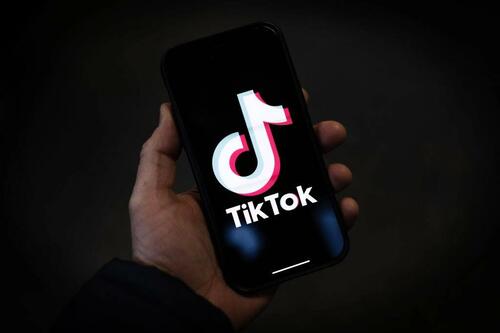By Catherine Yang of The Epoch Times
A federal appeals court on Dec. 13 denied TikTok’s request to delay the Jan. 19, 2025, deadline for it to cut ties with the Chinese communist regime, shortly after the app filed its final argument for a delay.
In an unsigned, expedited order, the three-judge panel denied the request and found there was no precedent for granting this type of request.
TikTok, its parent company ByteDance, and a group of TikTok users had challenged the Protecting Americans from Foreign Adversary Controlled Applications Act (PAFACA) that went into effect in April, arguing the law was unconstitutional on First Amendment grounds. PAFACA forbids apps that operate in the United States from being owned by a foreign adversary. ByteDance argues that it is effectively a ban because the Chinese regime will not allow the sale of TikTok and its proprietary algorithm.
The U.S. Circuit Court of Appeals for the District of Columbia last week denied the petitioners’ challenge, finding the law did not violate the First Amendment. The Justice Department, representing the government, argued that the law targeted ownership of an entity by a foreign adversary, not content on the app.
When President Joe Biden signed the law in April, it started a 270-day countdown for ByteDance to either divest of TikTok by Jan. 19, 2025, or cease operations in the United States.
TikTok then requested the court pause the countdown while it seeks appeal at the U.S. Supreme Court. The DOJ had opposed the delay, arguing three branches of government had already affirmed that TikTok presented a national security risk.
“The petitioners have not identified any case in which a court, after rejecting a constitutional challenge to an Act of Congress, has enjoined the Act from going into effect while review is sought in the Supreme Court,” the order reads.
The judges found that TikTok and the petitioners relied on First Amendment arguments that the court had already rejected in order to make their case for an extension.
“As to those claims, this court has already unanimously concluded the Act satisfies the requirements of the First Amendment under heightened scrutiny,” the order reads.
TikTok may ask the Supreme Court to issue an emergency injunction, effectively stopping the countdown, while the high court considers its petition. There is no guarantee that the Supreme Court will take any case.
In its emergency request for relief, TikTok said delaying enforcement of the law would “simply create breathing room for the Supreme Court to conduct an orderly review and for the incoming Administration to evaluate this matter—before one of this country’s most important speech platforms is shuttered.”
The platform said that a temporary shutdown would “have devastating effects on TikTok Inc.’s business” while halting the law would “impose no material harm on the Government.”
A separate filing showed TikTok creators declaring that the law would cause them harm. For example, Brian Firebaugh, a cattle rancher who has the “cattleguy” account on TikTok, told the D.C. circuit court that he earns most of his income through selling ranch products promoted on the platform.
“Not only would a TikTok ban quickly dismantle my business and my family’s way of life, it would also immediately eliminate the most effective tool for me to communicate with and support the agricultural community in Texas,” he said.
DOJ’s response said that TikTok and others were downplaying national security concerns.
“TikTok’s continued operation in the United States under its current ownership poses substantial harms to national security by virtue of TikTok’s data-collection practices and the covert intelligence and surveillance efforts of the Chinese government,” DOJ’s response read.
Continue reading at Epoch Times
